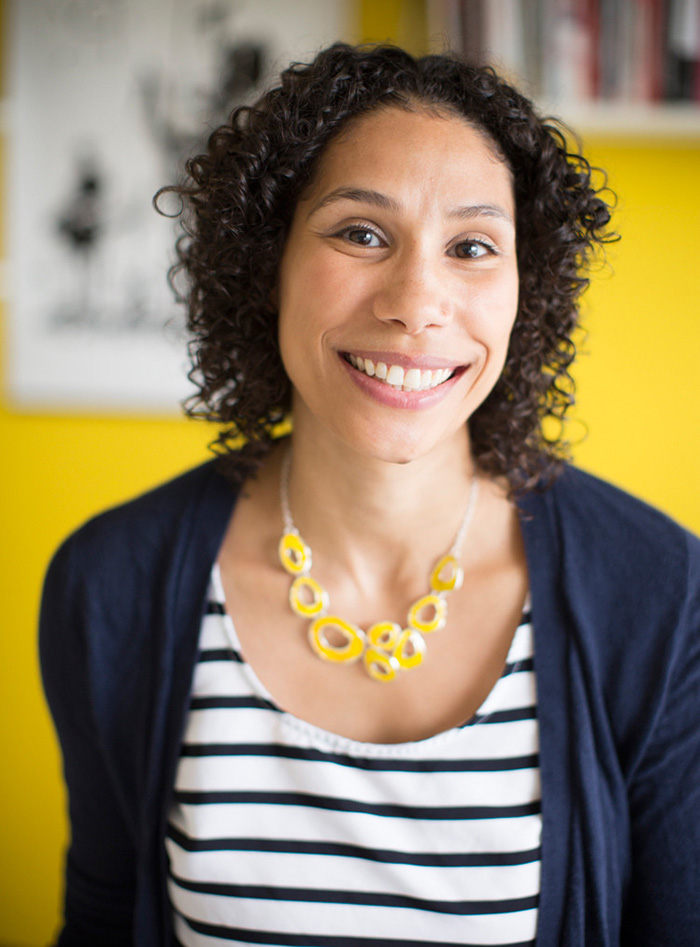Fearing surveillance, dads with a record avoid kids' schools
By Susan Kelley

In the past 10 years, a boom in research has documented the many ways in which a parent’s incarceration has negative consequences for their kids. Children whose parents have spent time behind bars have worse social, economic, cognitive, behavior and health outcomes than kids whose parents haven’t.
But researchers know less about why that is.
A Cornell sociologist, who is a former elementary school teacher, recently identified a mechanism that may explain why these kids have worse educational outcomes – and strong, lasting, negative consequences that often span generations.
Dads who have been incarcerated at some point from their child’s birth through age 9 are nearly 50 percent less involved in their child’s education, compared with fathers of the same race and income level who have never been incarcerated, according a study co-written by Anna Haskins, assistant professor of sociology.
But that’s not necessarily because they don’t care about their child’s schooling.
Rather, they may avoid their child’s school because they see it as a “surveilling institution” – an entity, like a bank or a hospital, that has increased security, direct connections to other public agencies and keeps formal records, the research found.
“They may avoid institutions they see as ‘surveilling’ because of distrust or dislike of the criminal justice system and police or shame and stigma – regardless of whether they’ve done anything wrong,” Haskins said. “Schools are unique because most people don’t think of them as surveilling institutions. But with their increases in security guards and metal detectors, they can seem that way to people wanting to avoid any further contact with the criminal justice system.”
Haskins and her co-author, Wade Jacobsen of the University of Maryland, published their study in the August issue of American Sociological Review.
The research has important implications, given the increasing prevalence of incarcerated people in the United States. Parental incarceration peaks by age 9; by middle childhood, nearly one in every 10 children has a parent who has been incarcerated, Haskins said: “That’s three kids in every elementary school classroom.”
The study found for 9-year-olds, a father’s first-time incarceration during his child’s formative years reduces his school involvement – doing things like showing up at parent-teacher conferences or attending a school play – by 44 percent, compared with no incarceration. And it reduces his home-based involvement – like reading to his child or helping with her homework – by 50 percent. A subsequent incarceration, compared to an incarceration only prior to the child’s first birthday, reduces the father’s school- and home-based involvement by 43 and 57 percent, the study found.
Haskins links these findings to other research that shows people who have been involved in the criminal justice system or who fear coming into contact with it purposefully avoid surveilling institutions.
And other research demonstrates people who have been incarcerated frequently “opt out” of community institutions to avoid the shame or stigma that might come up if their criminal records are discovered by teachers, school officials, other parents or their own children. “Parents opt out to save face,” Haskins said. “There are lots of families who say, ‘I don’t want to put my name on a list because someone might Google me. I wouldn’t risk that embarrassment or stigma or attention for my family.’ A lot of families are experiencing that.”
The researchers analyzed data from the Fragile Families and Child Wellbeing study, a representative sample of urban hospital births between 1998 and 2000. The study followed nearly 5,000 children, via interviews with parents when the children were born and at 1, 3, 5 and 9 years old. The Fragile Families study also included reports from the children’s teachers.
Parents in the study were asked if, at home, they read with their child? Talked about current events? Checked that homework was complete? At school, did the parent attend an open house or back-to-school night? Volunteer at the school? Go to a school or class event that the child was in? “Both at-home and in-school engagement show the parent is involved in their child’s educational success,” Haskins said.
A parent’s involvement with their child’s education matters, because schools often offer the resources, information and access to traditional avenues of social mobility that can make or break a child’s future, Haskins said.
“If you are not engaged in schools, you’re severing that opportunity, restricting avenues of social integration and potentially transferring feelings of institutional distrust,” she said. “So, you can just imagine the trajectory of disadvantage this sets up for particular groups of kids and families as early as during elementary school.”
Media Contact
Get Cornell news delivered right to your inbox.
Subscribe